Yes, cold weather can be bad for instruments. But you have to pay more attention to humidity than temperature with a piano in winter.
As a piano technician of 25+ years, I’m asked about this topic often. And having lived outside Chicago for several decades, I’m no stranger to cold weather myself!
Just as frigid weather demands that you sensibly respect your body and immune system, your instruments and other wooden items long for the same respect!
Humidity Makes Wood Expand
Lots of questions I hear sound more like, “Does wood expand in heat?” “Does wood expand in cold?” “Oh wait, so does wood shrink in cold?”
Temperature is important, but not as important as humidity. Exact humidity is less important than the SWINGS in the relative humidity (RH).
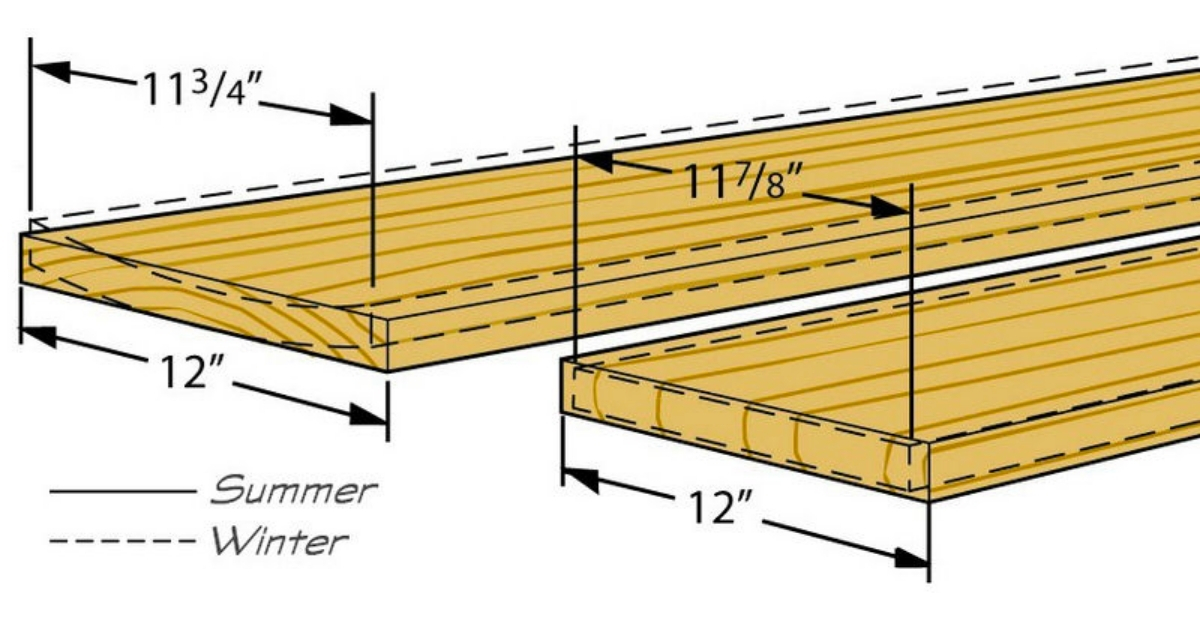
Does wood expand in cold? Well actually, it tends to contract since the winter is dry. Likewise, it might expand during the summer due to the humidity! (Image Source: Workshop Companion - Wood Movement)
When the humidity goes up, the wood fibers swell. This is why many wooden doors, drawers, and such “stick.” This swelling crushes wood fibers too since the wood cannot “grow” indefinitely.
When it gets too dry, the wood shrinks, and can become brittle and even crack. This shrinking is why the same drawers are loose and wooden chairs wiggle.
Many musical instruments, like pianos, guitars, violins, etc., use spruce — which sounds the best, but is not the most resistant to repeated wet-dry cycles.
Yes, these instruments were designed for regular home environments, but NO ONE and NOTHING was optimally designed for the frigid weather we sometimes endure in the Midwest — especially not a delicate instrument during a harsh January ie. a piano in winter.
Tuning May Go Unstable
Cold weather is bad for instruments, and people usually see this manifest itself in how their instruments going out of tune.
You certainly can play your piano and instruments during particularly cold days, but expect the tuning to be somewhere between “out of focus” and sour.
In the case of pianos, you may want also want a technician to tune it, especially if it was last tuned in the humid summer. Exact timing is up to you.
Regardless of when or weather, we do recommend acoustic pianos be tuned 1-2 times every year. You’ll benefit for more tunings during the piano’s first 2 years, or if you’re a more advanced player and have particularly excellent ears.
How to Protect a Piano in Winter from the Cold
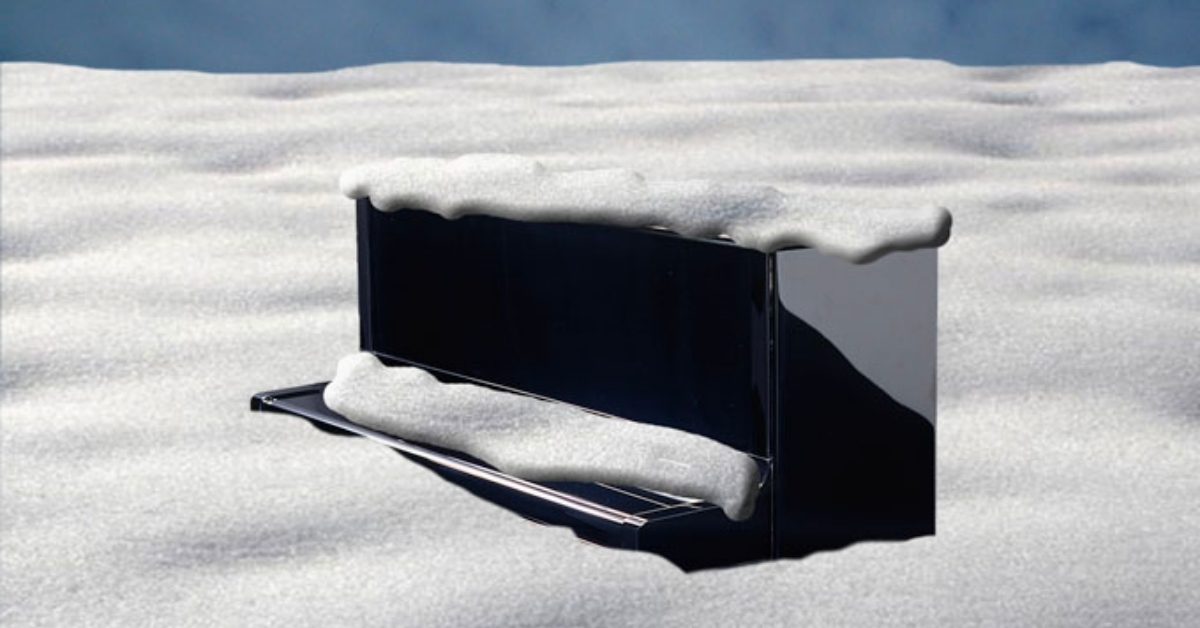
Short of your piano being in this situation, it's probably easier to care for your piano in winter than you think!
There are many ways to keep your humidity reasonably stable for your piano.
Luckily the problem is not as crazy-bad as it was a couple generations ago! I could write “hello” in the frost on the plaster – today’s homes are virtually always relatively well-sealed and insulated, have humidifiers on the furnace, and air-conditioned in the summer.
BUT when it’s 25 below zero plus huge wind chill – your furnace will run almost continuously and your humidity will drop A LOT! Even in our cozy home, my bones feel chilled, and so does my piano! And so do your instruments!
We do have a dedicated guide to year-round best tips for piano care too!
Piano Life Saver Dampp Chaser System
One popular solution for piano is the Piano Life Saver System (aka a Dampp Chaser). This has both a humidifier and dehumidifier and a humidistat to run the right part of the system at all times. They install almost invisibly inside your piano too.
You do have to keep water in the hidden tank for they system not to shut off (newer models). To keep the pads wicking efficiently for a long time, use distilled water, with a little tap water in the first batch when you have a new/clean tank.
This is a particular God-send in houses of worship and schools, where HVAC is turned off much of the time, and cranked to max the rest of the time. For many a piano in winter, it can definitely make all the difference!
Hygrometer for Checking Humidity
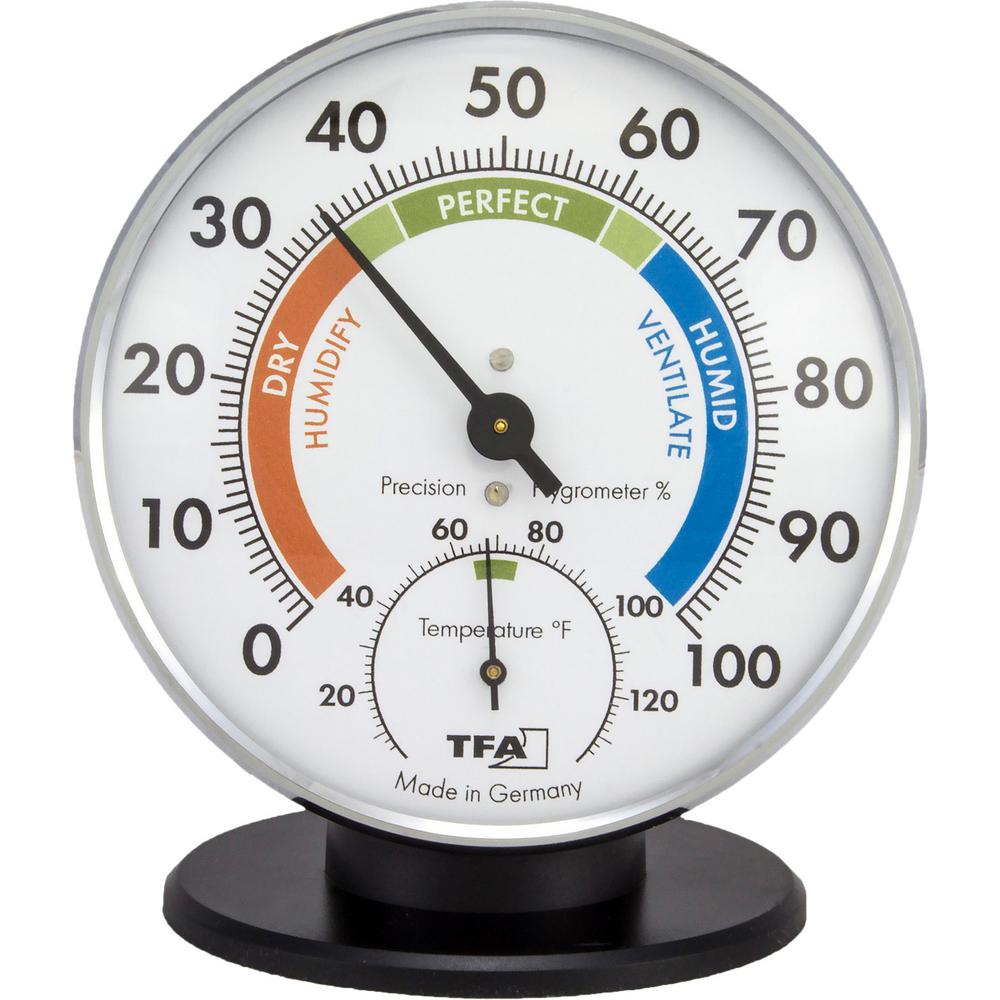
You can pick up a hygrometer like this for $15 - $40 in most hardware stores. Small investment that helps you keep your piano safe for a lifetime!
A hygrometer will tell you the temperature and relative humidity near your instrument.
I usually advise customers buy one to see if they even have a humidity problem before trying to solve it.
In a perfect world, your RH is around 40% to 60%. Although something a little drier can be fine too as long as RH doesn’t SWING wildly.
Whole Room Approach to Climate
Many people (including some piano technicians) say, “if you’re comfortable, your piano is comfortable” and may prefer this “whole room approach.” This is okay too!
Many at the least use a stand-alone humidifier and a dehumidifier to supplement their HVAC system. This can work very well, with the added benefit that YOU will be more comfortable too.
But super-frigid weather does call for extra measures. So we recommend you at least check humidity regularly during cold months!
Temporarily Moving a Piano in Winter
If your pianos are placed near outside walls, windows or other areas susceptible to shifts in humidity/temperature, you’re going to benefit from moving them a bit during super cold days.
Unsure if your piano is in a safe spot? Read our tips on proper piano placement!
If your upright piano is on an outside wall, move it towards the center of the room 6-8 inches, and back again next week. Grab the handle on the back and the keybed (NOT the front leg) and move one end at a time.
Similarly, if a grand piano is placed close to an uninsulated window, it’ll probably want to be a little farther away from it.
You may want to cover your piano for a couple frigid days too. Drape the back with a blanket, securing the front edge with the lid, or covering the whole piano. You can even put a pitcher or bucket of water inside this “tent” (if you don’t have critters to knock it over) to raise the piano humidity to a semi-normal level.
We want to highlight your piano should NEVER be by an HVAC vent (room air return vent is ok). If close to your piano, they should be closed and/or redirected all year — especially so when cold.
Mind Humidity, Monitor Temperature
Overall, just keep your eyes (and ears! if the instrument goes out of tune often, you may have a RH problem) open. If you’re noticing doors get stuck or drawers get loose, your piano probably needs some looking at too!
Most of the time, your existing systems are adequate. Not everyone lives in super frigid places that get hit by polar vortexes so worrying about weather might not be unnecessary.
But if you live in a climate anything like Chicago’s, following this advice will ensure your piano is nice and cozy year-round.

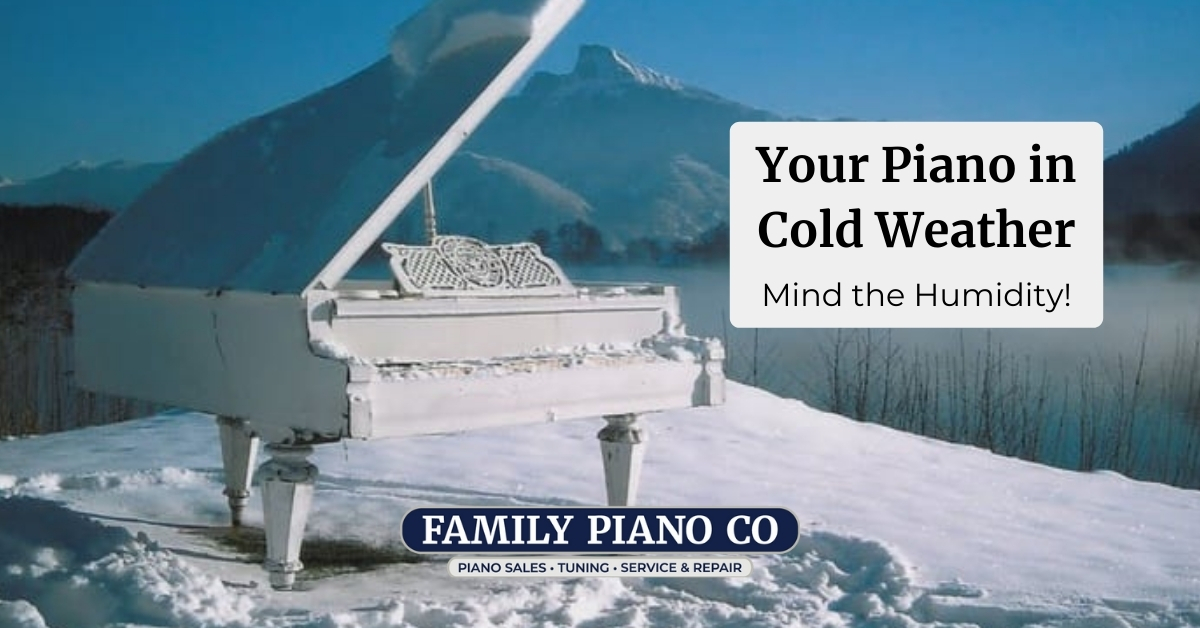
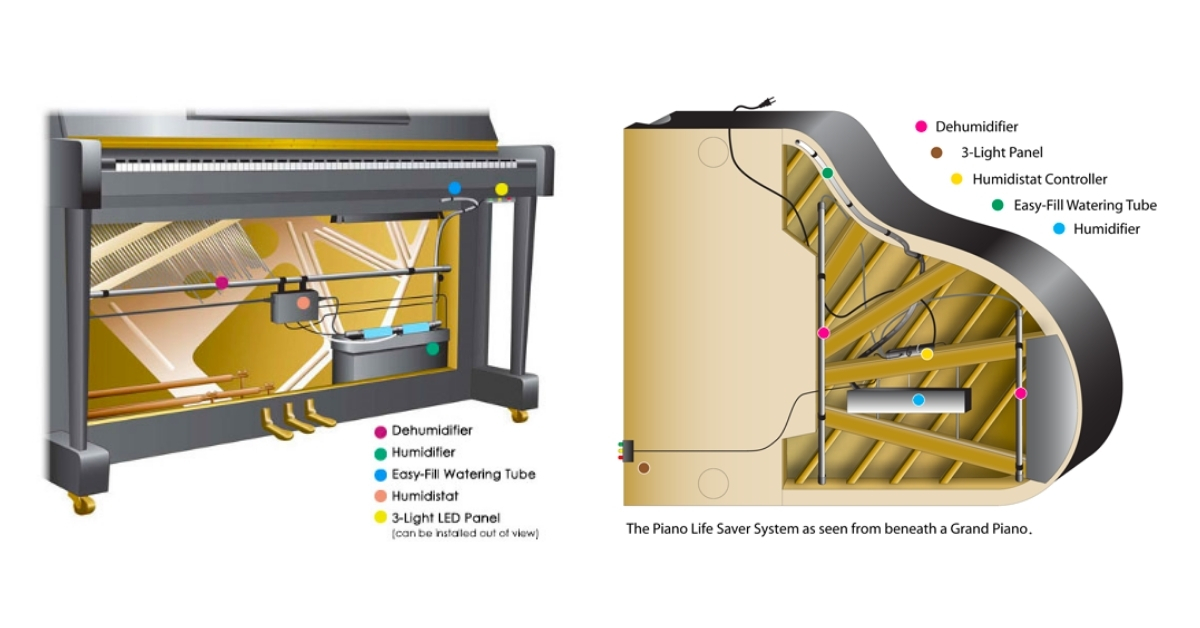



0 Comments